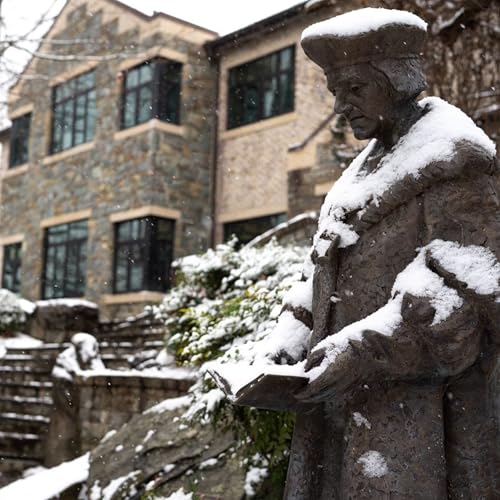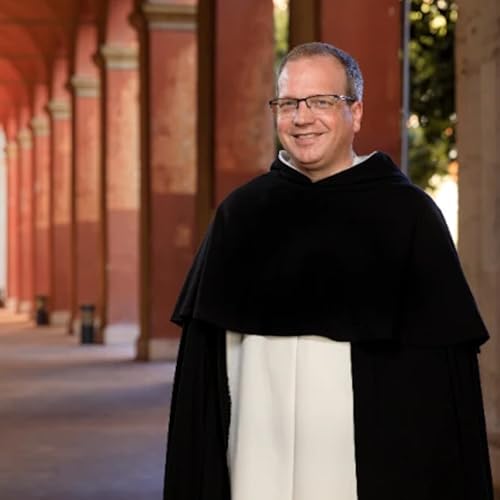Does a talented person have a duty to serve others? What do leading citizens really need to live well, freely, impactfully—even greatly? How do we, parents and educators, order the educational goods?
"When I think of Thomas More's life, writings, and example, I think: here are the materials we need to answer those questions."
So says Dr. Stephen Smith, professor at Hillsdale College and co-director for the Center for Thomas More Studies. St. Thomas More not only provided a robust theory of education and duty in his writings, but also a praxis of that education by his heroic actions at the Tower of London in 1535. Dr. Smith joins us this week to discuss how More's life and education can be a pattern for our one-day leading citizens.
Chapters:
2:32 The living image of a great man
8:49 More's philosophy of learning
12:50 Virtue in the first place
16:25 Love of good advice
18:48 Leading citizenship: skill and integrity
24:51 Pride as the enemy
29:32 On modern times: "Do not abandon the ship"
35:14 Mentorship: time and attention
46:39 Hope and humor
54:21 Thomas More as a father
Links:
The Center for Thomas More Studies, featuring video courses, teaching resources, and the written works of Thomas More
The Last Riddle: Advice on Living and Dying Well by Stephen Smith, pre-order for June 2026
The Essential Works of Thomas More edited by Gerard Wegemer and Stephen Smith
A Thomas More Sourcebook edited by Gerard Wegemer and Stephen Smith
On Duties by Cicero
Thomas More: A Portrait of Courage by Gerard Wegemer
"Letter to William Gonell, 1518" by Thomas More
Young Thomas More and the Arts of Liberty by Gerard Wegemer
"A Dialog of Comfort against Tribulation" by Thomas More
"Erasmus on Thomas More" by Erasmus
Also on the Forum:
Elon Musk and Mother Teresa Schools by Nate Gadiano
Teaching the History of our "Strange New World" featuring Michael Moynihan and Austin Hatch
Learning for All Seasons: What We Owe to Thomas More by Dr. Matthew Mehan
The Arts of Liberty – Part I featuring Dr. Matthew Mehan
Featured Opportunities:
The Art of Teaching Boys Conference at The Heights School (May 6-8, 2026) – sold out
Teaching Essentials Workshop at The Heights School (June 22-26, 2026)
Conference for Teaching Men at The Heights School (November 2026) – link coming soon
 1 h et 8 min
1 h et 8 min 41 min
41 min 54 min
54 min 55 min
55 min Jan 15 202646 min
Jan 15 202646 min 34 min
34 min 28 min
28 min 51 min
51 min
